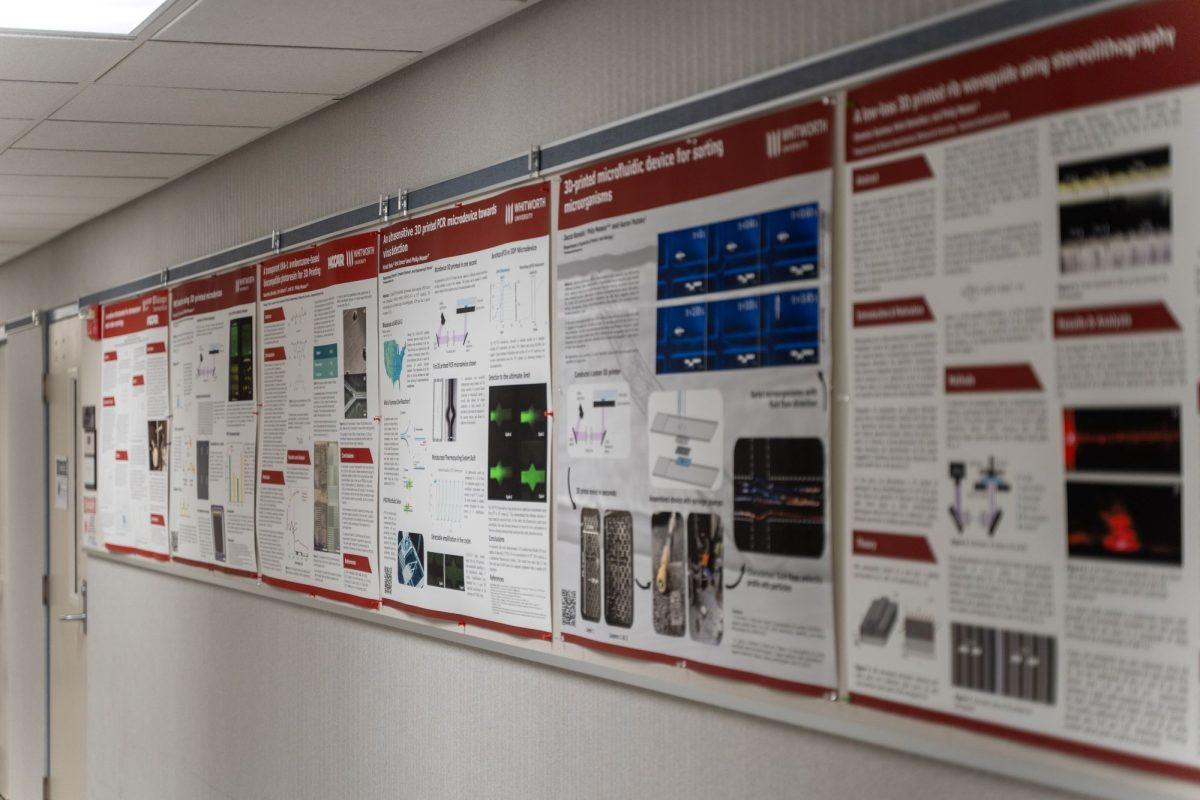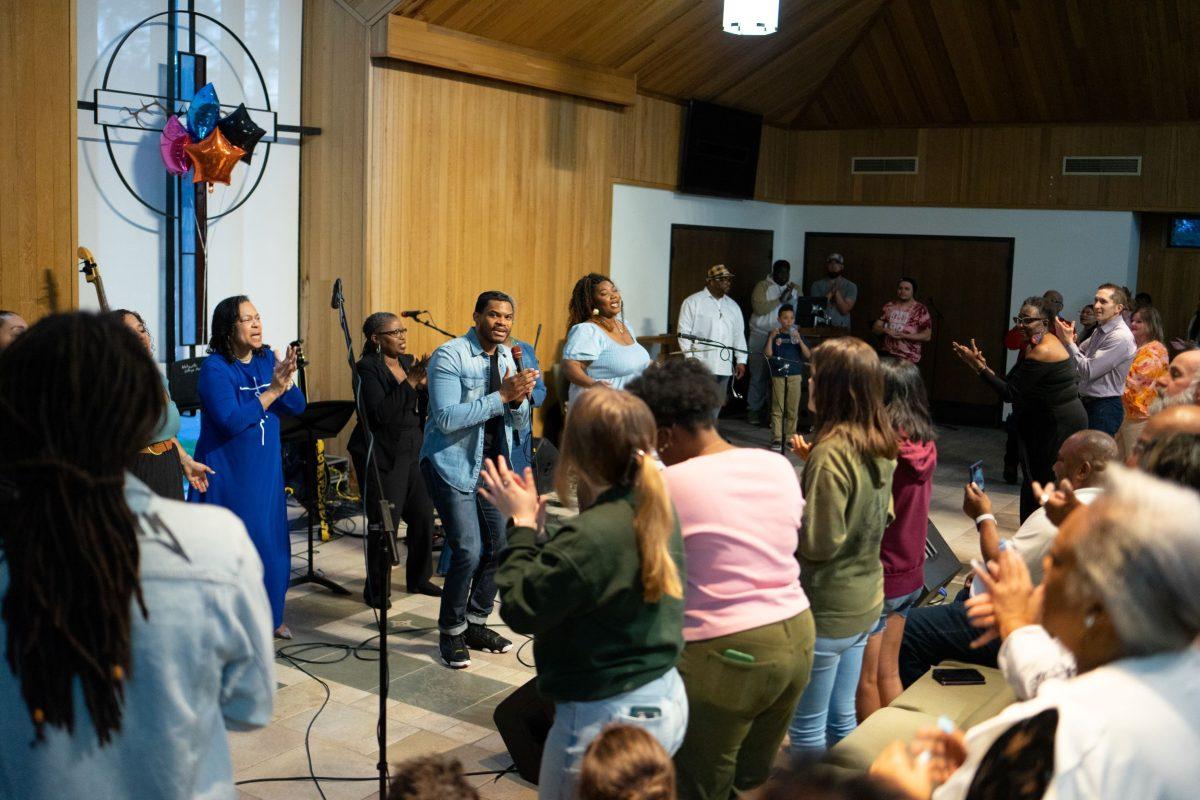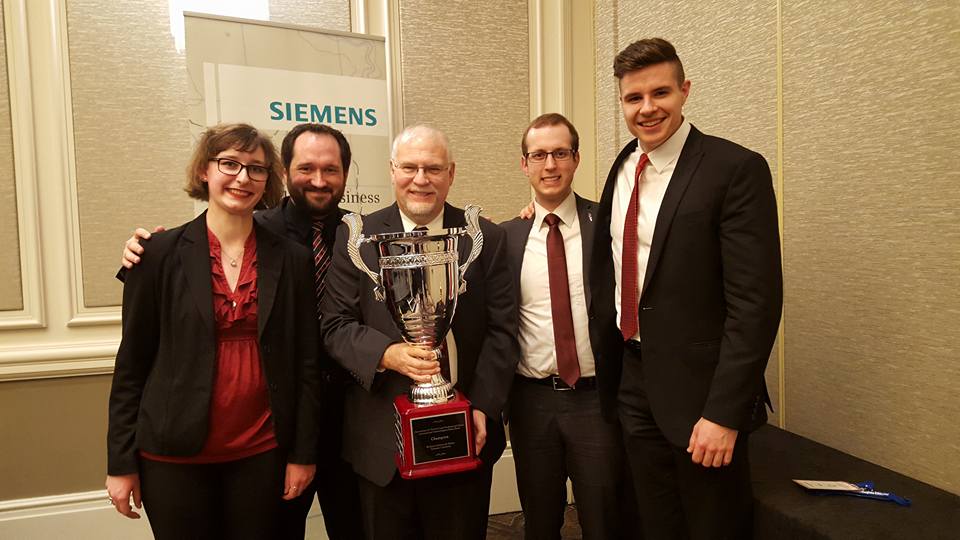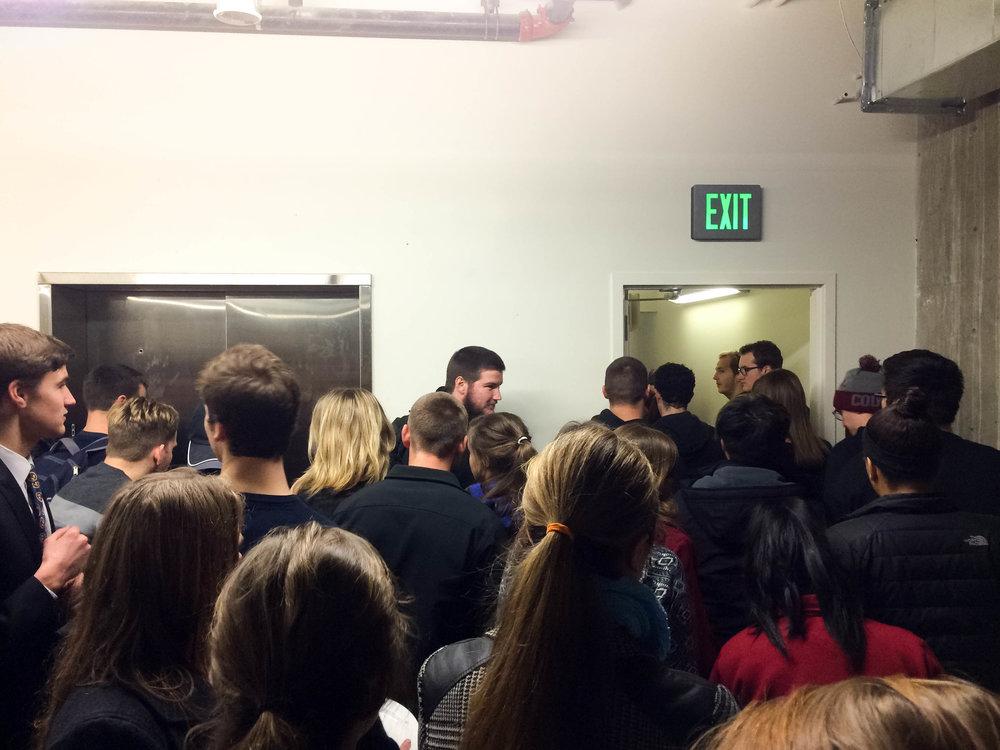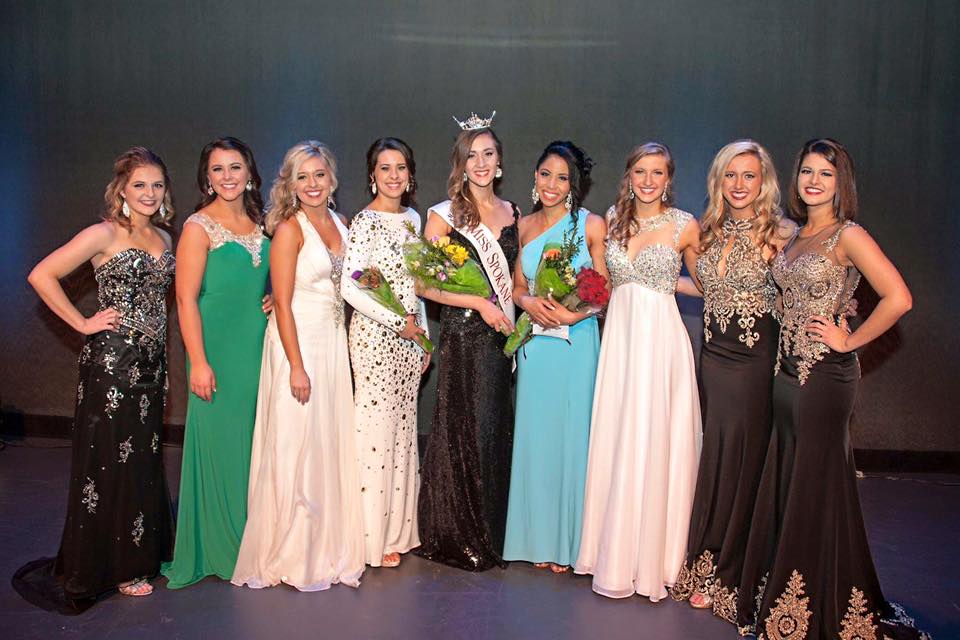by Karlin Andersen
Editor-in-Chief
This May the first class of students to complete the George Whitworth Honors Program will graduate. Three students out will walk with honors cords in a class of 529 graduates.The honors program began with around 160 eligible entering freshman four years ago and 60 enrolling in the program.
Lilly Davis is one of the three graduating students in the honors program. Davis entered the program as a freshman and regularly met with other honor students at program meetings and her academic advisor, but said it was challenging to figure out the program requirements at times.
“It was pretty cumbersome,” Davis said. “It’s tricky and they’re still trying to define what exactly counts as honors and what that process looks like. So on the bright side it gave me a little bit more flexibility on how I was able to do the program.”
Davis was able to complete her required honors internship through the communications department. By writing an additional paper on top of the required hour log, reflection paper and journal Davis got the internship to count for honors. Her study abroad trip with the theology department also counted for honors credits with extra assignments and speaking with professors.
“[The program requirements are] fairly flexible in that it heightens the level of whatever you’re doing,” Davis said.
After attending a program meeting earlier this year Davis was encouraged by how the program has developed since she was a freshman.
“Continue to build up more structure for the program,” Davis said, offering advice for the program. “Continue to provide more opportunities for students.”
Program director Doug Sugano acknowledges the lack of retention from freshman to senior year.
“There’s clearly an issue with retention, but there are several reasons for that,” Sugano said. “One is I don’t think students understand what the program has or what the benefits of the program are, that’s number one.”
Sugano said he believes the large initial enrollment number is misleading as the program takes all eligible freshman, but many decide not to stay in the program throughout their four years.
“The biggest reason being students don’t maintain the 3.75 [grade point average],” Sugano said.
The graduating honors students will have completed at least 15 credits of honors classes with many courses being outside their major and at least four of six extra requirements including study abroad, an internship or a research project.
Those requirements are to be met while graduating in the top 20 percent of one’s major(s) and with a minimum 3.75 GPA.
Sugano believes the rigorous requirements do not hinder the benefits of the program.
“They’re just great classes and they’re classes where we try to build interesting and slightly different academic real life experience, that’s number one,” Sugano said. “Number two, I think what they’ll get out of most of the classes is not only will they get a great experience, but they can also take something from that class such as an experience.”
Unknown to many students after entering Whitworth, students can enroll in the honors program if they meet and maintain the required GPA.
Starting the program late can be challenging as students often have their four-year plans already set and may be multiple semesters into their academic careers.
“I would say that if they’re interested in doing the honors program, and I highly recommend it because it’s going to look really good on their resumes and their grad school applications,” Sugano said. “I would say they can do it, but they’re going to have to really plan and have a really solid four-year plan that they stick with and that’s where the advising comes in.”
The program mission statement continues to list the advantages of the program.
“Our honors students benefit from the smaller class size of honors seminars, enjoy the camaraderie of fellow honors students in learning communities, and receive priority consideration for certain internships,” according to the Whitworth honors program website.
Sugano said honors classes also provide an opportunity for students to build portfolios and resumes that can be later used to apply for jobs. Graduating with honors is beneficial to add to graduate school applications, Sugano said.
“Some of the classes will have internships attached to them or other professional experiences attached to them that don’t necessarily take them to grad school but for example build a portfolio,” Sugano said. “Just about anyone coming for a job is going to need a portfolio.”
Currently, the Jan Term Smithsonian Institute internship is initially opened to honors students, then non-honors students if spots are still available. Honors classes are open to all students regardless of enrollment in the honors program.
“I feel like for the most part they were pretty similar,” Davis said on the difference between honors and non-honors courses. “In my Core 350 D-group I was actually the only one in there doing it for honors. So it really depends on the individual passions of the students in the class as to how much they get out of it.”
Sugano said he believes honors classes can dive deeper into a subject than non-honors classes while being taught through untraditional methods.
“They’re designed to be interdisciplinary, they’re designed to be more experimental,” Sugano said. “We like to think of it as more project -based learning. There is a curriculum and we want them to learn something specific, but we want them to do it by experiencing certain things or by working on a project together.”
Working together and building community is something Davis would like to see more of in the program.
“I think a big thing is community,” Davis said. “I think having a sense of community of we’re in this honors program together and doing this together even though we’re all doing different classes within that honors program would be beneficial.”
To deal with the issue, Sugano hopes to begin two honors GE-125 classes next fall. With each class enrolling 20-30 students they would be better served in the program by specific major advisors and peer advisors while building community. Sugano believes the courses would also increase retention from freshman to sophomore year.
He hopes to cap the program’s capacity at 90-120 students with currently 80-90 students in the program. However, the number of enrolled students does not represent the actual number of honors graduates as students can remain in the honors program without remaining on track to graduate with honors.
“I hope that takes care of it and I hope to get out the benefits of the program,” Sugano said. “I think the retention after the first year has been much better.”
Contact Karlin Andersen at [email protected]


